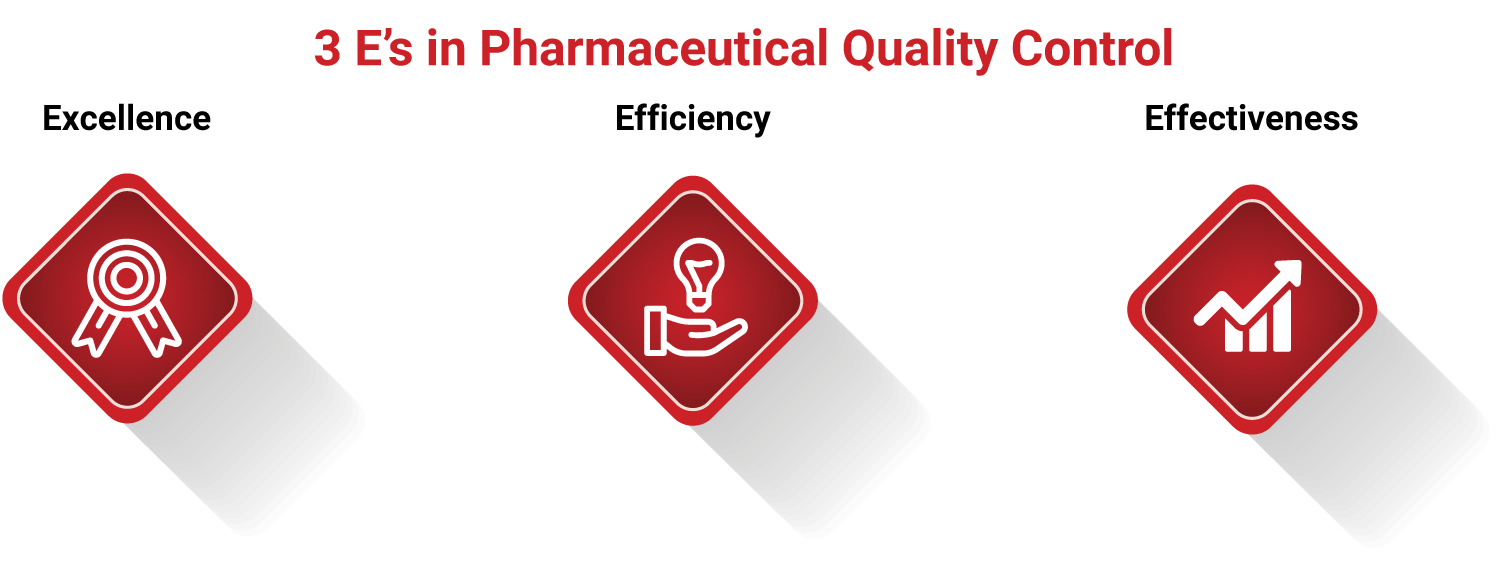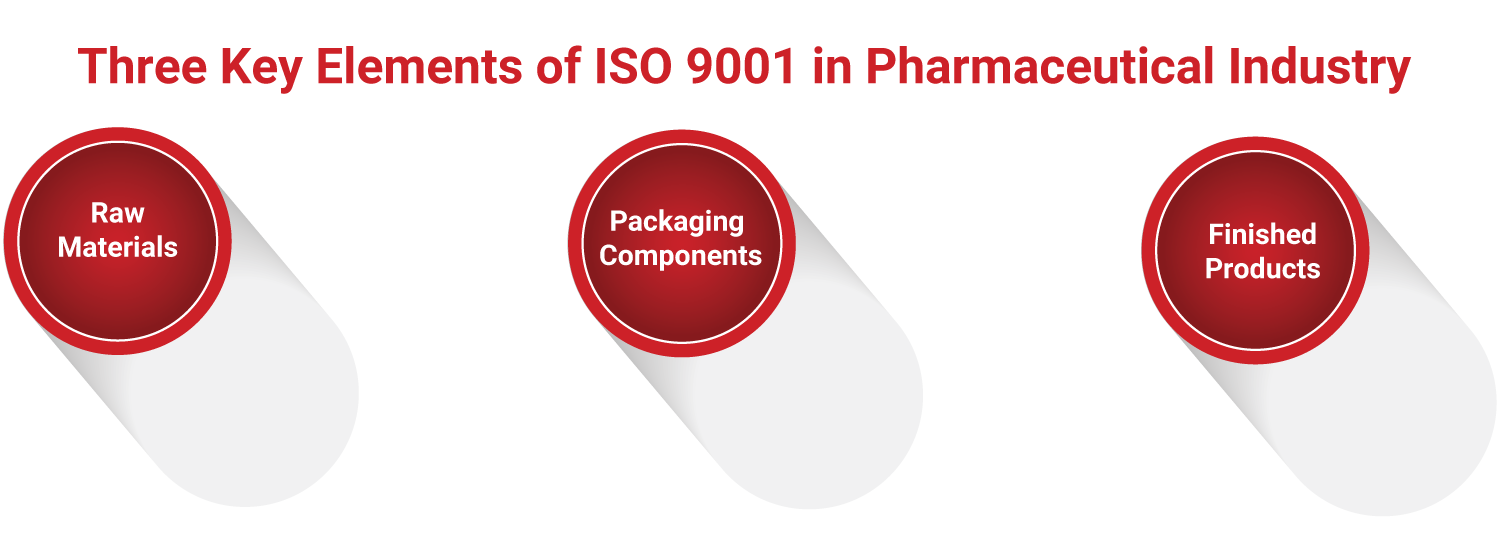The evolution of the pharmaceutical industry over the years in the world market has been of a great concern for the health care service institutions, and customers, particularly. The importance of pharmaceutical industry utilization relies on the premise of quality control management implementation, which intends to improve the management system processes and the ability to meet customer needs. The implementation of pharmaceutical quality control implies the necessity of integrating ISO 9001 quality system requirements, which assures quality, safety, efficacy, and compliance of pharmaceutical products.
In addition, the implementation of an ISO 9001 management system in the pharmaceutical industry will ensure product and patient safety. Essentially, a quality control system is a tool for preserving the welfare of patients, by ensuring that medicinal products are in accordance with international standards to assure that quality, safety, and efficacy have met patients’ expectations.
ISO 9001 – A Process to Focus on
ISO 9001 is a recognized global standard for quality management systems and a prerequisite for maintaining business continuity, and quality systems that are observed, controlled, measured, and improved in the pharmaceutical industry. The integration of a quality management system in the pharmaceutical industry requires the establishment of progressive quality control objectives that involve quality standardization, control of quality deviations, evaluation of methods and processes of production, quick sale of quality goods, and improvement in quality processes. These objectives of a quality management system are projected to assist customers/suppliers in improving their approaches toward pharmaceutical management strategies and increasing the level of efficiency and safety in the business market.
In its most recent report, FY 2015 Inspectional Observation Summaries, US Food and Drug Administration (FDA) said it issued 678 Forms in a total of 483s-forms indicating areas of noncompliance at a facility to pharmaceutical companies in the fiscal year 2015. Most of these FDA forms mark nonconformity procedures of developing quality and drug safety, inspection and calibration performance failures and the implementation of process materials that are not conforming to standard principles of identity, quality, purity, and strength.
Nevertheless, the system deficiencies in the pharmaceutical industry can diminish with the implementation of the quality management standard ISO 9001. The fundamental approach of quality management integration, ISO 9001 adheres to the improvement schemes of avoiding deficiencies in pharmaceutical industries. ISO 9001 integrated management system provides organizations and individuals on the premise of efficiency, quality, and safety, and contributes to an enhanced quality management system.
What is the role of Quality Control in the pharmaceutical industry?
Quality control is an entity that identifies characteristics and specific requirements of a product or service. The quality control in the pharmaceutical industry ensures that the scheme of quality management follows an ongoing process of the supply chain, from the distribution of raw materials to the manufacturing controlled process, and to the final process of drug production.
3 E’s in Quality Control:
Effectiveness – to what extent required plans are realized
Efficiency – the relationship between resources being used and results achieved
Excellence – the responsibility of doing the right things right
The key elements of Quality Control in Pharmaceutical Industry
Raw Material and API (Active Pharmaceutical Industry) – Quality control in raw materials and API is important for evaluating the composition and validation of product materials in the pharmaceutical industry. The quality control considers the evaluation of raw materials physical and chemical structure, testing and analysis, and other controls of active pharmaceutical manufactured ingredients.
Packaging Components – The selection of an adequate packaging that preserves the integrity of the product is crucial for the pharmaceutical industry. However, the adequate selection of the product packaging requires the identification of physical and chemical characteristics, its marketing brand requirements and its product protection needs.
Finished Products – Quality control demonstrates its significance in the final process of drugs and other supplements productions. The quality control technologies involve testing, high-performance liquid chromatography packing material, content uniformity, quality variation, and inspection procedures.
What are the benefits of ISO 9001 Quality Control?
The improvements in the quality of pharmaceutical products and services are essential for business continuity and sustainable growth in a fast changing market. The integration of quality management system ISO 9001 in pharmaceutical industry conveys beneficial actions in the market, such as:
• Improvement of the quality of production and cutback in the production cost of the products
• Uniformity in the production and supply of standard quality goods to consumers
• Decrease in spoiled production and rejection from consumers and dealers
• Promotion of exports due to superior and standard quality production
• Reduction in inspection cost
• To face market competition effectively, to create goodwill in the market and to have customer support
In the recent years, we have witnessed the rapid development of pharmaceutical industry approaches toward building a legitimate system of quality and professionalism. With the lack of a health care system, qualitative drugs production and medical managed services are nothing else than a waste of money for customers and governments. Nonetheless, the integration of a management system based on ISO 9001 will undertake continual improvements in the quality, safety, compliance, and efficacy of products in the pharmaceutical industry.
The standard approach of a quality management system ISO 9001 is the key element for achieving the desired outcomes in the pharmaceutical industry. This approach will assist organizations and individuals to attain qualitative, professionalism and efficiency in the pharmaceutical market.
PECB
PECB is a worldwide recognized company for its services in providing training courses, examination, audit and certification services for individuals, management systems, and products of international standards. Here and now the increase of pharmaceutical industry in the business market, in particular, the supply chain of the production process and the utilization of pharmaceutical products is enormous. In addition, PECB offers a wide range of training courses that can facilitate individuals and management systems to overcome defects and threats of quality control in the pharmaceutical industry.












